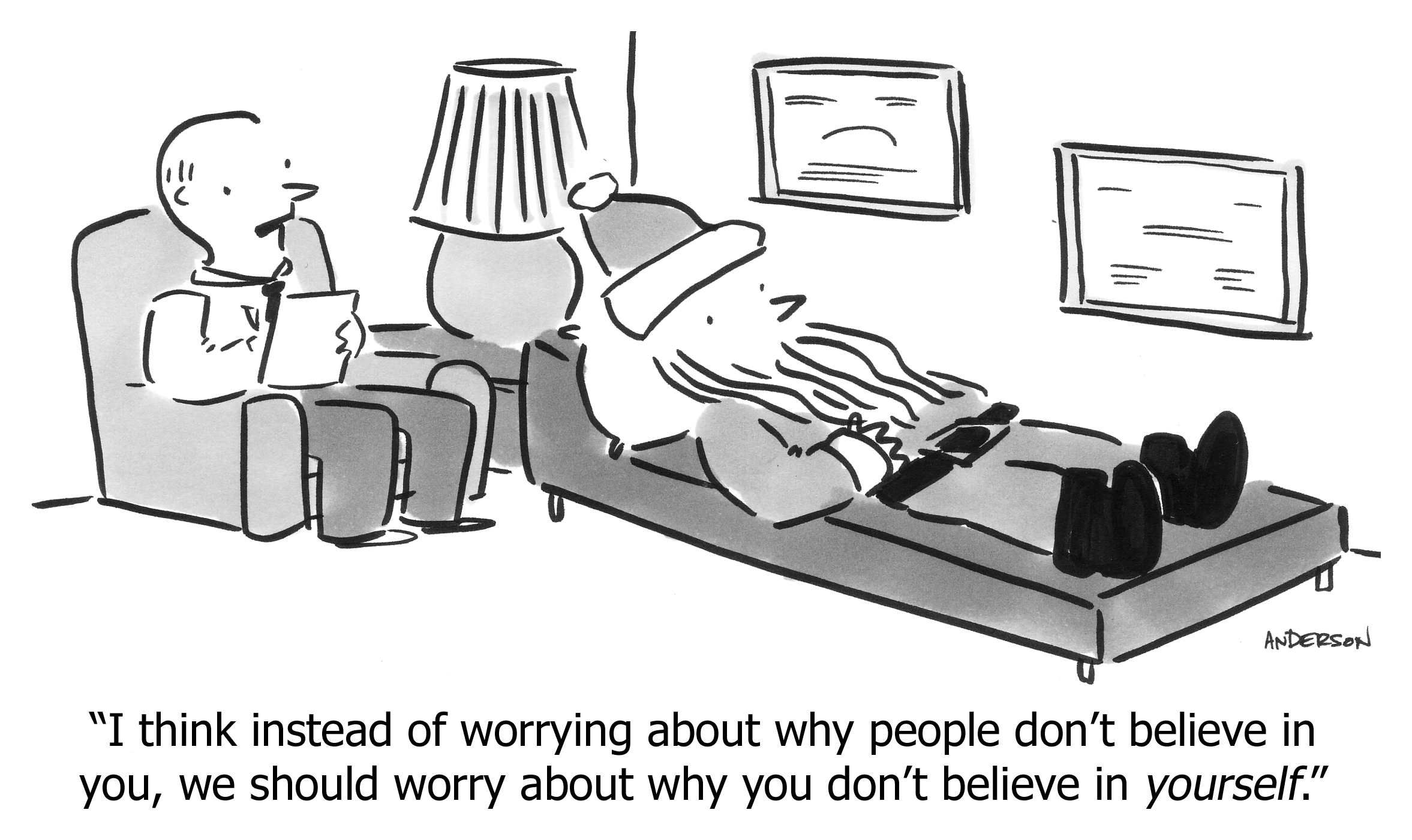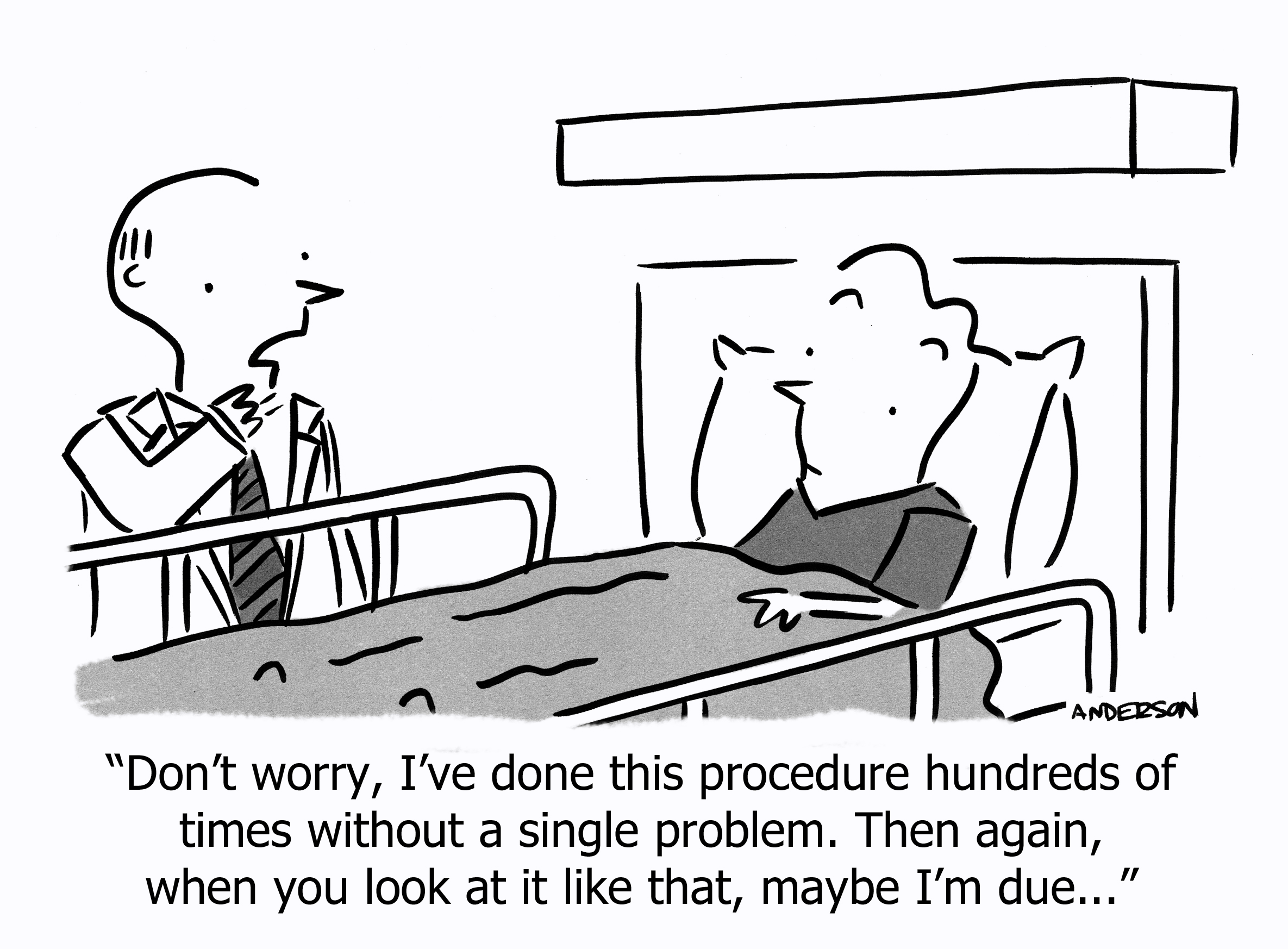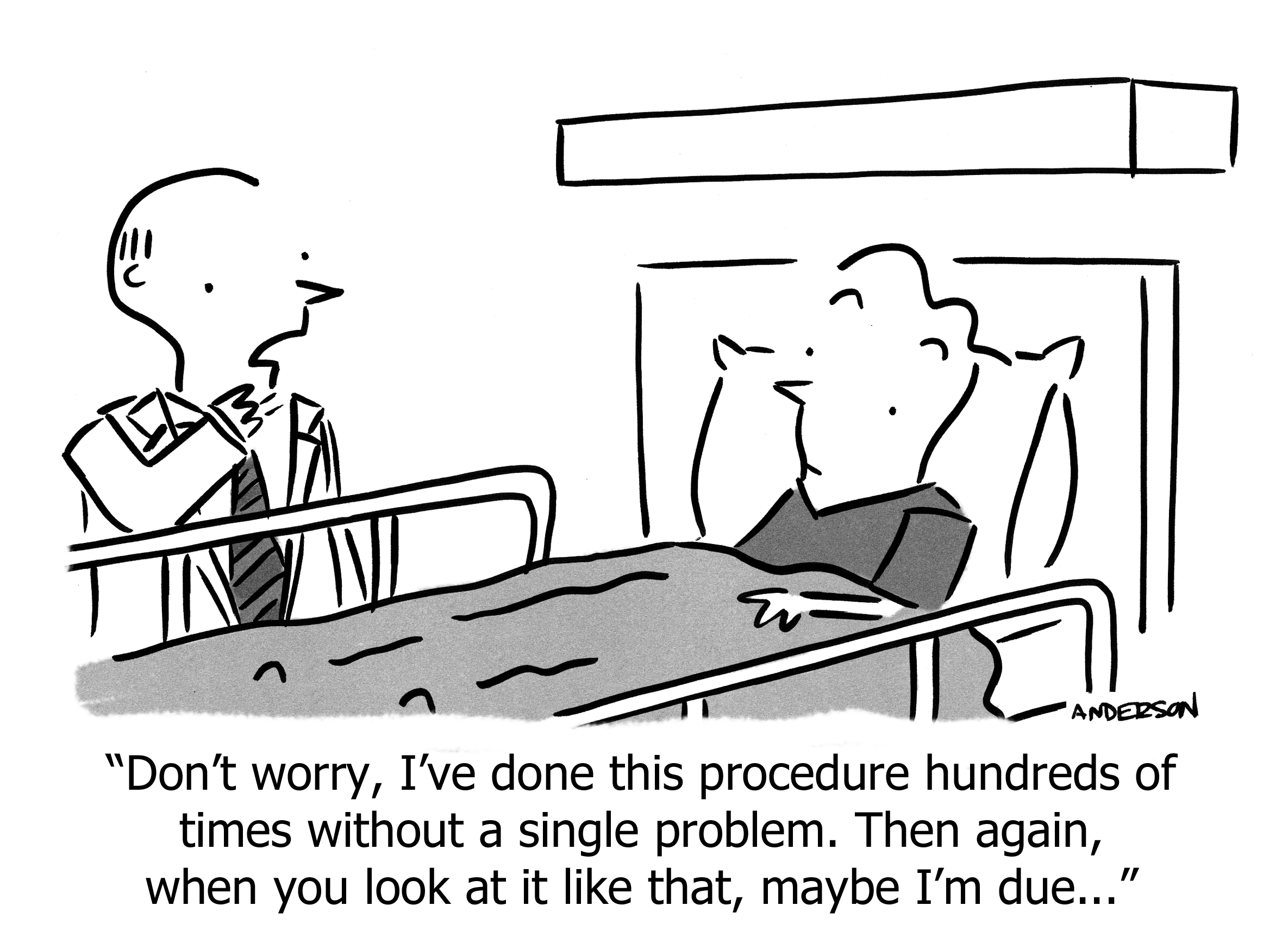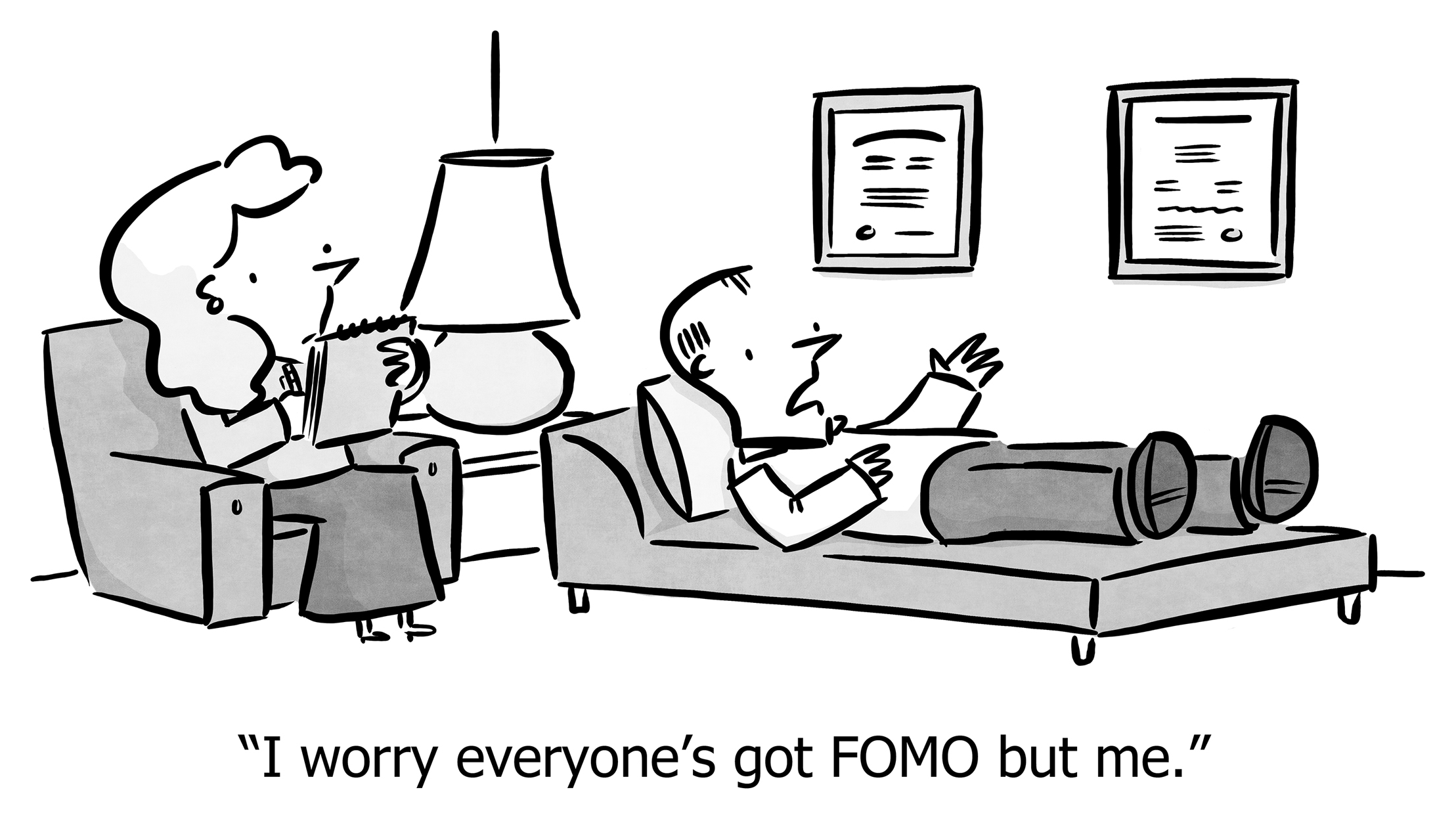Worrying is self-fulfilling; what to do instead
Worrying is a self-fulfilling prophecy.
“Worry” causes the very thing you’re worried about, to actually happen.
When you’re backstage getting more and more anxious that your performance won’t be good, you’re implanting thoughts of second-guessing and fear that will arise during the performance. Instead, you should realize you’ve already done all the practice required, and mistakes don’t actually matter anyway. No one is counting except you.
When you’re lining up to take a shot on the pool table, or a serve in tennis, or swing your golf club, if you’re worrying about all the things you’re supposed to do, thinking while you’re doing, you inevitably screw up the shot. Instead, you should visualize the shot ahead of time, then clear your mind and execute using muscle-memory.
“Worry” breaks things which aren’t broken. It doesn’t lead constructively to solutions, it just creates problems.
The opposite of “Worry” isn’t “Apathy”. The opposite is “Preparation”.
There’s a long-term version of planning that all great athletes do. They pummel themselves with purposeful repetition of specific skills, to the point of boredom. They plan energy output and practice-schedules across an entire season, such that they peak during the most important meets.
Equally, there’s preparation in the very seconds prior to execution. Visualization is a technique common to all sport; its efficacy has been verified by a robust set of experiments. At the Olympics you catch glimpses of downhill skiers, gymnasts, and ice skaters, eyes closed, immersed in a VR of the mind, swaying with muted motions of their routines and routes. Billiard players visualize the motion of the cue ball before they strike, but they clear their minds as they actually strike.
As you might expect, this is a generic lesson that applies to all other aspects of life. Applied to startups, this includes worrying about how to make payroll, worrying how the competition will hurt you, worrying about what someone said about you on Twitter, worrying that the visual design isn’t compelling, worrying that you won’t be able to close the customer on this call, worrying that you’re not optimizing for the right metric, worrying that you don’t know the right way to do things.
Worse, turning the gun on yourself: Worrying that it’s just too hard, worrying that you’re not following good advice, worrying that everything you do is unsatisfactory, worrying that others are so much better than you and therefore that you have no business doing any of this in the first place.
Startups are a crucible; these are among the symptoms.
If some of this rings true, those links will help.
In any case, realize that the worry itself is worse than unhelpful—it’s destructive. It might even be better to be blissfully ignorant than to worry.
Instead, tackle the root of the worry constructively, prepare yourself as best you can, and then just proceed.
https://longform.asmartbear.com/worry/
© 2007-2026 Jason Cohen
 @asmartbear
@asmartbear










